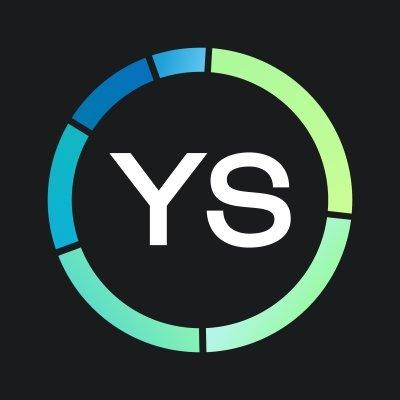Invest in single-family homes
Invest in private market alternatives
Investments
$56,000
The minimum investment on Doorvest is a 25% down payment on a home, averaging $56,250 based on the average home price of $225,000.
Moderate Risk
3/5
Investing with Doorvest involves risks such as market volatility, economic changes, and property-specific issues. While the platform aims to manage these effectively, outcomes can be uncertain, and investors should carefully consider their risk tolerance and conduct due diligence before investing.
Moderate Risk
3/5
Yieldstreet investments, focused on high-yield, specialty lending, carry inherent risks higher than traditional investments, primarily due to the potential for borrower default.
Minimum Liquidity
1/5
Doorvest allows investors to sell their homes back to the platform, requiring them to connect with a client partner for more information on the process.
Minimum Liquidity
1/5
Yieldstreet's investments are generally less liquid, meaning they cannot be quickly sold for cash. These private market alternatives often require longer holding periods.
Receive new reviews from Fintorial
High Return
18 %
Doorvest reports an average annual investment return of 18%, accounting for rental income, property appreciation, and mortgage leveraging.
Moderate Return
9.6 %
The expected net annualized return (IRR) for investors on Yieldstreet is 9.6%.
Long-term Investment
5-30 years
Doorvest focuses on long-term investments in single-family rentals, generally suggesting a commitment of several years to decades, based on real estate appreciation and rental income.
Short-term Investment
6+ months
Yieldstreet's investments span time horizons from as brief as 6 months to as long as 5 years.
Who can invest
United States
To invest with Doorvest, you need to be in the U.S. or able to sign documents at a U.S. Embassy.
Who can invest
United States
Yieldstreet is open to U.S. persons with a valid TIN, U.S. bank account, and U.S. mailing address. Non-accredited investors can access the Alternative Income Fund, while single asset investments require accredited investor status verification.
Moderate Volatility
3/5
Real estate assets on Doorvest can experience volatility due to economic shifts, interest rate changes, and local market trends, potentially affecting investment values and posing risks for short-term investors.
Moderate Volatility
3/5
Assets on Yieldstreet, being alternative investments, often show different volatility compared to traditional markets, potentially offering less correlation with broad market swings.
Regulation and audits
TREC Regulated
Doorvest complies with the Texas Real Estate Commission (TREC) consumer protection notice, indicating adherence to state-level real estate transaction standards. It does not provide details on broader financial regulations or audits, focusing more on real estate industry compliance than securities regulation.
Regulation and audits
SEC Regulated
Yieldstreet is regulated and undergoes regular audits for compliance. Its partnership with Synapse Brokerage LLC, an SEC-registered broker-dealer and FINRA and SIPC member, ensures adherence to strict financial regulations.
Insurance
Yes
Doorvest protects rental investments with homeowner's insurance, covering physical structure damage and potentially extending to personal belongings and medical expenses. This coverage is a mortgage lender requirement, safeguarding against various damages, though investors should be aware of any coverage limitations.
Insurance
Yes
Funds in the Yieldstreet Wallet are insured up to $250,000 by the FDIC, with deposits between $250,001 and $1 million spread across multiple FDIC-insured banks for extended coverage.
Payouts
Rental Income
Doorvest offers rental income as returns to investors, bolstered by a Rent Guarantee that includes vacancy and non-payment protection for the first three months, with an option to extend up to 12 months. Additionally, a Renovation Guarantee covers repair costs for the first year of ownership.
Payouts
Dividends
Yieldstreet offers varied dividend or interest payment structures: fixed income investments provide monthly payments at a target yield, diversified portfolios offer quarterly target yields, and art investments yield returns upon sale, all subject to specific terms and potential annualized net returns.
Withdrawals
To get their money back, Doorvest investors need to sell their property, with the timeline depending on market conditions and the sale process. The process is initiated through Doorvest, and funds are received after the property is sold and the transaction is completed.
Withdrawals
Investors on Yieldstreet receive distributions directly into their Yieldstreet Wallet and can withdraw these funds to their bank account as desired.
Extra Fees
Yes
Doorvest employs a fee model, deriving revenue from a portion of the monthly rental income and margins on home sales, always at fair market value.
Extra Fees
Yes
Yieldstreet's fees include a range from 0% to 2.5% annual management fees, structured notes incur a 1.25% annual management fee plus a $150 annual fund expense, the Yieldstreet Alternative Income Fund charges a 1.0% annual management fee and up to a 0.5% annual administrative expense.
Taxes
Tax Form
Doorvest facilitates tax compliance by providing investors with all necessary documentation for tax filing, related to real estate investment income and expenses.
Taxes
Tax Form
Yieldstreet issues either a K-1 or 1099 form for tax purposes, based on the legal structure of the investment, with details provided on the offering page and in downloadable documents when new offerings are launched.

